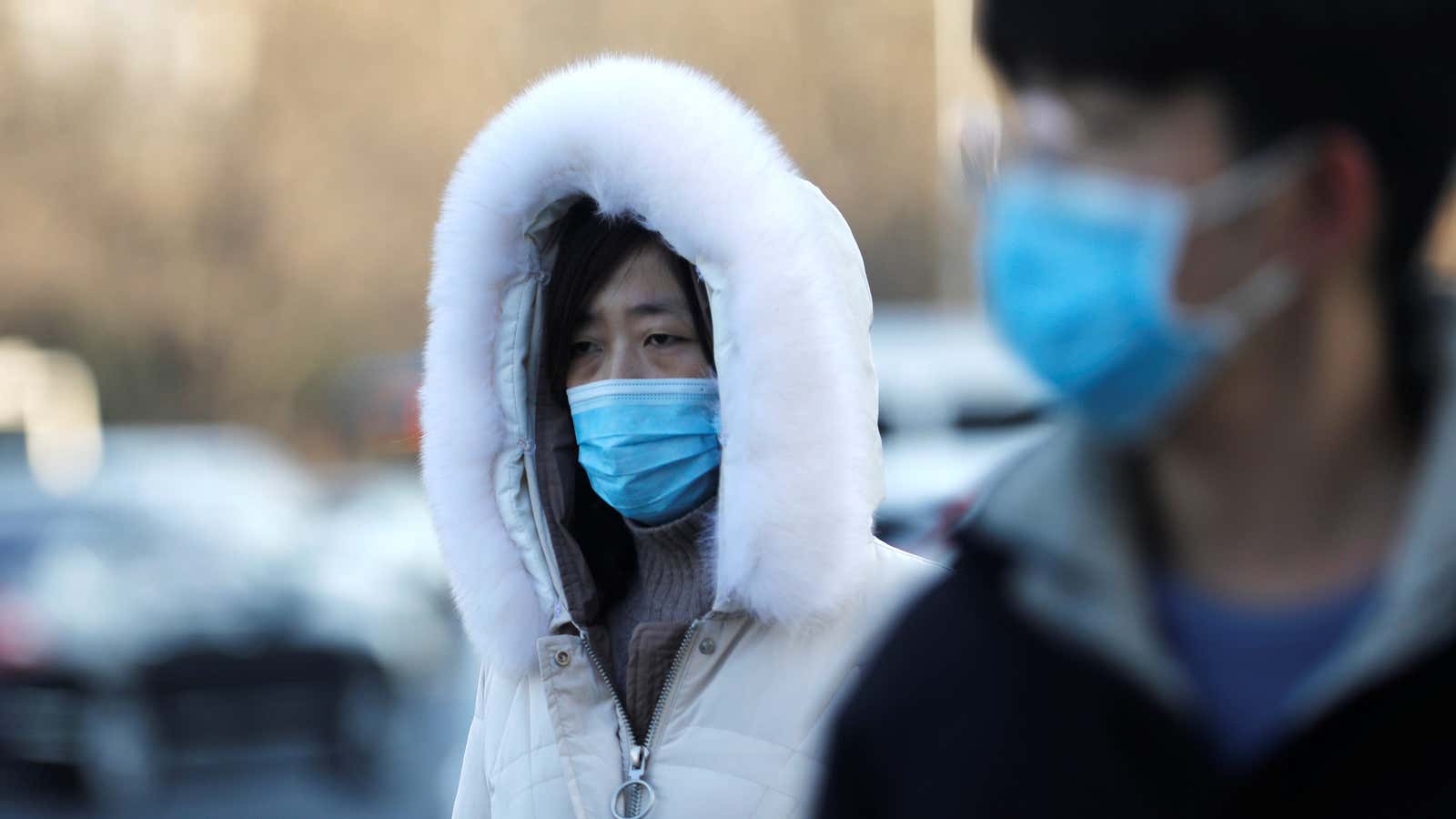Good morning, Quartz readers!
Was this newsletter forwarded to you? Sign up here. Forward to a friend who loves to ski or snowboard.
Here’s what you need to know
China locked down a third city. 20 million people now can’t leave home after Anyang—500km south of Beijing, and with a population of 5.5 million—was placed under severe covid restrictions for an indefinite period.
Health insurers have to cover the cost of rapid covid tests in the US. From Jan. 15, the Biden administration has instructed insurance companies to pay for up to eight tests a month, but that’s only for people who have health plans.
The vice chair of the US Federal Reserve quit early. Richard Clarida was due to retire in two weeks, but left early for unspecified reasons; he’s been under scrutiny over trading in early 2020, just as the Fed prepared pandemic measures.
Smoke inhalation killed most victims in the Bronx fire. Officials said a pair of open doors funneled deadly fumes around the building. Many of the 17 people who died are thought to have been from the Gambia.
Russia and the US made no progress in Ukraine talks. Both countries repeated themselves, and neither budged. Russia will try again with NATO on Wednesday (Jan. 12).
The past seven years were the world’s hottest on record. New data from the EU’s satellite system indicate that humans really must get their emissions situations under control.
What to watch for
Every year, the World Economic Forum asks hundreds of leaders about the biggest risks in the next 12 months. Ahead of today’s release of the 2022 Global Risks Report, we look at the most pressing worries for some of the world’s most powerful people last year. They were prescient—not that it took a crystal ball to tell what the biggest risk in 2021 would be.
🦠 Infectious diseases. As cases soar, pandemic-related woes will likely be a top item in 2022.
👛 Livelihood crisis. The world’s poor had a harder time making ends meet in 2021. Whether they do better this year will depend on how the pandemic unfurls.
🌩️ Extreme weather events. After an eventful year, scientists expect 2022 to have its fair share of natural disasters.
💻 Cybersecurity failure. Ransomware gangs made headlines in 2021, but companies have been slow in building up their cyberdefenses.
Omicron’s toll on health workers
The latest wave of omicron infections has led to healthcare staff shortages around the globe. In the US, the Centers for Disease Control and Prevention is allowing hospitals to call those who tested positive or were exposed back to work if they have no symptoms. In the UK, the military has stepped in to fill shortages at London hospitals. Doctors at India’s public hospitals have been asked not to isolate if they come in contact with a covid-positive patient, according to a local news report.
24%: Proportion of the 5,000 US hospitals reporting their staff status to the US Department of Health and Human Services that have a “critical staffing shortage”
~800: Doctors in India who died of covid during the country’s second wave, according to the Indian Medical Association
115,000: Nurses who have died of covid globally, according to WHO estimates
A pandemic silver lining
One positive thing the fight against covid-19 has taught us is the potential of mRNA technology. Some believe that mRNA is the future of vaccines and, maybe, pharmacology at large. The latest issue of the Forecast email looks at the possibility of an everything vaccine. Try a seven-day free trial of Quartz membership to read it and all our member-exclusive newsletters.
Handpicked Quartz
🍆 The world’s largest condom manufacturer has had a surprisingly bad pandemic
💼 How to resign from a job you just started
🛂 The EU is belatedly lifting the travel ban on southern African countries
⛷ Climate change threatens the ski, snowboard, and winter sports industry
👩🏫 China’s private tutoring giant disclosed the huge toll of Beijing’s education crackdown
⚽️ How much will the winners of the Africa Cup of Nations receive?
Surprising discoveries
Canon is telling customers that they don’t really need its proprietary chip-enabled cartridges after all. Finally, thanks to the semiconductor shortage, the truth comes out.
A fossilized ancient sea dragon skeleton was found in the UK. The dolphin-esque predator, called an ichthyosaur, is a rare inland discovery.
A warm satellite dish is the perfect cat bed. As one Starlink user found out, this doesn’t bode well for connectivity.
Ornate folding and stitching served as document security for 16th century European royals… Attention all tween note-passers.
…And those royals’ armies rode dainty horses. A study of thousands of bones from the fourth to 17th centuries indicated that even the most intimidating warhorses were about the size of modern ponies.
Our best wishes for a productive day. Send any news, comments, cutie marks, and elaborately secure letters to hi@qz.com. Get the most out of Quartz by downloading our iOS app and becoming a member. Today’s Daily Brief was brought to you by Hasit Shah, Ana Campoy, Annalisa Merelli, Manavi Kapur, Susan Howson, and Liz Webber.
